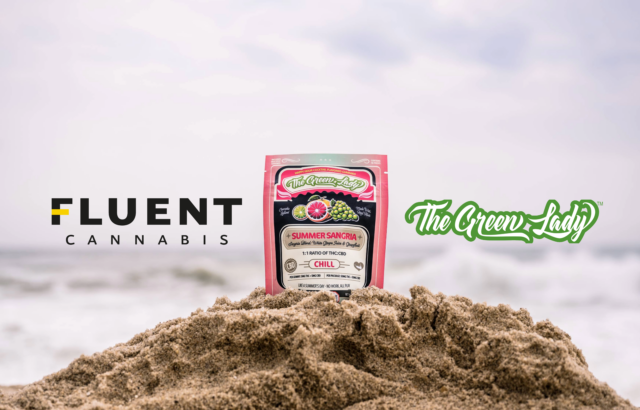In 2016, Florida became one of the first states to legalize medical cannabis. According to the Office of Medical Marijuana Use (OMMU), there are 647 licensed dispensaries in Florida providing cannabis products to patients.
If you’re considering applying for a medical cannabis card in Florida, it’s crucial to understand the requirements, the certification process, and what to do once you have your card. We’ll also discuss why it is essential to re-certify your medical card with a cannabis healthcare provider like DocMJ Florida before it expires.
Age and Residency Requirements In Florida
In Florida, the legal age for obtaining a medical cannabis card is eighteen. Adults who meet the medical requirements (one or more diagnosed qualifying health conditions) can apply for a card on their own. No parental consent is required for adults between 18 and 21.
Caregiver Program For Pediatric Care
While the minimum age for medical cannabis in Florida is eighteen, qualified patients can also access medical cannabis through a designated caregiver. This individual is a parent or legal guardian. For minors, the caregiver must be at least 21 years old and will be responsible for purchasing and dispensing medical cannabis, with guidance from healthcare providers.
Registration of a minor for medical cannabis treatment requires diagnosis and approval from two qualified physicians. Patients under eighteen must also have informed written consent from their legal guardian before joining the Florida patient registry.
Residency Requirements
To be eligible for a medical cannabis card in Florida, you must be a state resident. Proof of residency is a crucial part of the application process. Acceptable documents to prove residency include a valid Florida driver’s license or a Florida identification card.
For seasonal residents (or snowbirds) who reside in Florida for at least 31 consecutive days each year, documentation such as a deed, mortgage, rental agreement, utility bill, or similar showing an address in Florida can be used. Seasonal residents must also provide proof of out-of-state residency to confirm their status.
How to Get Certified For a Florida Medical Card
If you have a qualifying medical condition, getting a medical marijuana card in Florida is not difficult. It just requires a few steps to become a registered patient.
1. Medical Evaluation
The first step in getting certified for medical cannabis use in Florida is to schedule an appointment with a qualified physician. Not all doctors can certify patients for medical cannabis; they must be registered with the Florida Department of Health’s Office of Medical Marijuana Use (OMMU).
During the evaluation, the physician will review your medical history, discuss your current symptoms, and determine if you have a qualifying condition under Florida law.
Qualifying health conditions include:
- Cancer
- Epilepsy
- Glaucoma
- HIV/AIDS
- Post-Traumatic Stress Disorder (PTSD)
- Amyotrophic Lateral Sclerosis (ALS)
- Crohn’s Disease
- Parkinson’s Disease
- Multiple Sclerosis
- Chronic nonmalignant pain (caused by a qualifying condition).
- Terminal conditions diagnosed by another physician (end-of-life care).
- Other medical conditions of the same class at the discretion of the certifying physician.
Suppose you do not have medical records that confirm your diagnosis of a qualifying medical condition. In that case, you will need to visit your primary care provider to update that information before you attend your appointment with a cannabis healthcare provider.
2. Certification and Registration Fee
After you have visited a cannabis healthcare provider and they have determined that cannabis is safe for you to use, the physician will enter your information directly into the Medical Marijuana Use Registry for the Florida Department of Health.
After your information is entered into the registry, you can proceed to submit your application for a medical cannabis card. This process can be completed online through the Medical Marijuana Use Registry’s website.
The application requires:
- A completed application form.
- Proof of residency (as mentioned earlier).
- A passport-style photo taken within the last 90 days (if not using a Florida driver’s license or ID card).
- An application fee of $75 (payable online or by check/money order).
Once submitted, the Florida Department of Health will review your application. If everything is in order, you will receive your medical cannabis card in the mail. However, you don’t have to wait 1-2 weeks for your medical card to arrive. You will receive a temporary medical cannabis ID card by email, which is accepted at dispensaries.
What to Do After Your Doctor Has Certified You
Receiving certification from your doctor is a significant milestone, but there are several important steps to follow after this to ensure you can legally obtain and use medical cannabis:
1. Wait for Approval
Once you have submitted your application, it typically takes about ten business days for the Florida Department of Health to process it and issue your medical cannabis card, assuming there are no issues with your application. During this waiting period, make sure to keep track of any correspondence from the Department in case additional information is required.
2. Accessing Medical Cannabis
Once you are approved and receive your temporary Florida medical card (by email), you are ready to head to a local Medical Marijuana Treatment Center (MMTC) or dispensary. Florida has numerous MMTCs across the state, providing a variety of cannabis products, including oils, tinctures, capsules, topicals, and edibles. It’s essential to follow the dosage and usage recommendations provided by your physician.
3. Understanding Legal Protections
Holding a medical cannabis card provides certain legal protections, such as the ability to possess and use medical cannabis within the legal limits set by the state. However, it’s important to understand that these protections apply only within Florida.
Transporting cannabis across state lines, even to other states where it is legal, remains a federal offense. Additionally, using medical cannabis does not exempt you from workplace drug policies; employers may still enforce drug-free workplace rules.
Consuming cannabis on federal property is a felony offense (whether you have a medical card or not). That includes places like federal buildings, some waterways, and National Parks.
4. Staying Compliant
Adherence to Florida’s medical cannabis laws is crucial. This includes not driving under the influence of cannabis, not using it in public places, and keeping your usage within the limits prescribed by your doctor.
Misuse or non-compliance can result in legal penalties and the revocation of your medical cannabis card. It is illegal to share or provide your medical cannabis products with anyone else.
Why You Do Not Want to Let Your Medical Cannabis Card in Florida Expire
Maintaining an active and valid medical cannabis card is crucial for several reasons. The legal protections you have to purchase and possess medical cannabis expire when your card does.
Legal Compliance
Your medical cannabis card is your legal safeguard, allowing you to possess and use medical cannabis. If your card expires, you lose this protection, and possessing or using cannabis becomes illegal, subjecting you to legal problems. You are no longer a “protected patient” once your Florida medical card expires.
Continuous Access to Medication
For many patients, medical cannabis is a vital part of their treatment plan. Allowing your card to expire means you cannot legally purchase cannabis from an MMTC, potentially disrupting your treatment and leading to a lapse in medication that could exacerbate your symptoms.
Licensed Medical Marijuana Treatment Centers in Florida are legally prohibited from selling cannabis to any patient with an expired medical card. Even if your medical card is expired by one single day, dispensaries will not sell products to you.
Renewal Process
The renewal process for a medical cannabis card is not automatic. While your medical card is good for twelve (12) months, patients must get a recertification from a licensed physician every seven months.
To remain active in the Florida medical cannabis registry, you need to:
- Schedule a follow-up appointment with your certifying physician to reassess your condition and treatment plan every seven months. This is a check-up appointment and an opportunity to discuss your symptoms and get guidance on safely using medical cannabis.
- Submit a renewal application to the Florida Department of Health along with the required fee.
- Ensure your physician updates your information in the Medical Marijuana Use Registry.
Failure to renew your card on time can result in delays, during which you will not have legal access to medical cannabis. The OMMU now permits patients to conduct their recertification appointments through telemedicine services. However, patients can only recertify online if they visit the physician who initially approved them for medical cannabis.
Cost Considerations
While the application fee for a medical cannabis card in Florida is $75, allowing your card to expire can result in additional costs. If your card lapses, you might need to undergo another initial certification process, which could involve more substantial fees than a straightforward renewal.
The cost of certification (or recertification) in Florida varies according to the healthcare provider. To keep a valid Florida medical cannabis card, you must see a physician every seven months.
Should You Keep Your Florida Medical Card If Adult Use is Legalized?
If Florida legalizes adult use (recreational cannabis), many patients may wonder if it is worth keeping a medical card. After all, post-legalization, anyone over twenty-one (21) years can present valid photo identification and purchase at a licensed dispensary.
In other states where both medical cannabis and recreational use were legalized, patients save money by having a medical card. An excise tax is usually charged on top of the standard retail tax on every purchase of recreational cannabis products. Patients are typically exempted from paying an additional tax on medicinal products.
The certification and application process might seem daunting at first, but it’s designed to ensure that medical cannabis is used responsibly and for legitimate medical purposes. By staying informed and compliant with state laws, you can explore the therapeutic potential of medical cannabis safely.



